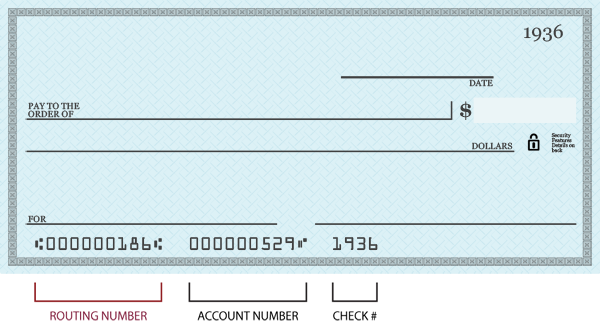Retirement? What retirement? Sure, it’s an old cliché, but chances are it’s a question that rings true for many business owners.
Let’s face it, small business owners typically run 24/7 and are simply too busy to think about retirement. But that day will come – and when it does, you’ll thank yourself for picking up your head long enough now to be prepared for it.
Define Your Goals
A solid retirement plan starts the same way all good plans do: by clearly defining your goals. First, open a notebook or Word doc and jot down your initial thoughts in response to these questions:
- When would you like to retire, ideally?
- What activities do you plan to do when you are no longer working?
- Where will you live during retirement?
- How much will you need for healthcare, emergency savings, etc.?
Answering these questions may take some time and should include thoughtful discussions with your spouse or family. It's important to have these conversations to ensure you build a realistic retirement plan.
How will you fund your retirement?
Once you know when you want to retire and have answered the other questions above, the next step is to calculate the retirement income needed to match your plan. Try out one of our retirement calculators to find out if you're saving enough to retire by your target date.
That figure will probably seem a bit daunting, but here are some plans that are great options for business owners:
1. Traditional or Roth IRA
If you think you’ll save $6,000 a year or less, choose an IRA. Are you 50 or older? Then you qualify for a $1,000 catch-up contribution on top of the $6,000 limit. Traditional IRAs are tax-deferred until you use the money in retirement, but future withdrawals from Roth IRAs are tax-free if certain criteria are met. Because there are no requirements to have employees, IRAs can be an ideal tool if you’re self-employed.
2. Solo 401K
Designed like a standard 401K (with pre-tax contributions and taxed distributions after age 59½), this option may make sense if you’re self-employed or have no employees (aside from a spouse). You’re allowed to contribute the lesser of $57,000 (plus a $6,000 catch-up) or 100% of your income each year. Special rules apply based on your business type.
3. SEP IRA
This is an option to consider for self-employed or small business owners with minimal employees. With a SEP IRA you can make a $57,000 contribution or up to 25% of compensation or net self-employment earnings (with a maximum of $285,000), whichever is less. There is no catch-up contribution. Eligible employees (including yourself) must receive an equal percentage.
4. Simple IRA
This IRA is an option to consider for businesses with up to 100 employees. It lets you contribute up to $13,500 (plus a $3,000 catch-up). Simple IRAs allow a maximum of $19,500 in contributions to an employer plan. While contributions are tax-deductible, retirement distributions are taxed. However, employee account contributions of up to 3% can be deducted as business expenses.
5. Defined Benefit Plan
A defined benefit plan is a smart choice to consider if you’re self-employed with a high net worth and savings goals to match. Contributions are based on your age and projected retirement benefits. While retirement distributions are taxed, contributions are tax-deductible. (Note: Contribution limits must be set by an actuary.)
More than likely, your income in retirement will be sourced by various financial streams – savings, investments, social security, individual retirement accounts (IRAs). It’s important to create a portfolio that encompasses all the ways you can fund retirement and a financial advisor can be a valuable partner in helping you build a solid plan.
Determine Your Future
Once you’ve outlined your goals and identified a path to build your retirement plan, you’ll need to assess your business to determine its future value. Be careful not to overestimate--your plan contributions depend on the accuracy of your business valuation. And the last piece of the puzzle is succession planning. Will you pass your business down to a family member? Sell it to another business partner or sell your shares to an existing employee? The time to determine who’ll take over your business is now, not when you’re ready to retire.
Need assistance with succession planning? We can help! Our financial advisor can offer insight and ideas to help you pursue both short and long-term objectives. For more information or to set up an appointment for a no obligation, complimentary and confidential financial review, call 866-224-1379 or visit any of our office locations.
*Securities offered through Raymond James Financial Services, Inc., Member FINRA/SIPC, and are not insured by bank insurance, the FDIC or any other government agency, are not deposits or obligations of the bank, are not guaranteed by the bank, and are subject to risks, including the possible loss of principal. Lakeland Bank and Lakeland Financial Services are not registered broker/dealers and are independent of Raymond James Financial Services. Investment advisory services are offered through Raymond James Financial Services Advisors, Inc.
Links are being provided for information purposes only. Raymond James is not affiliated with and does not endorse, authorize or sponsor any of the listed websites or their respective sponsors. Raymond James is not responsible for the content of any website or the collection or use of information regarding any website's users and/or members.
Raymond James financial advisors may only conduct business with residents of the states and/or jurisdictions for which they are properly registered. Therefore, a response to a request for information may be delayed. Please note that not all of the investments and services mentioned are available in every state. Investors outside of the United States are subject to securities and tax regulations within their applicable jurisdictions that are not addressed on this site.
** Like Traditional IRAs, contribution limits apply to Roth IRAs. In addition, with a Roth IRA, your allowable contribution may be reduced or eliminated if your annual income exceeds certain limits. Contributions to a Roth IRA are never tax deductible, but if certain conditions are met, distributions will be completely income tax free.
Investing involves risk and you may incur a profit or loss regardless of the strategy selected. Please be aware that, in certain retirement account types, withdrawal of pre-tax contributions and/or earnings may be subject to ordinary income tax and, if taken prior to age 59 1/2, may be subject to a 10% federal tax penalty. You should speak with a qualified tax professional prior to making any investment or withdrawal decisions.
The linked calculator is for hypothetical examples used for illustrative purposes and do not represent the performance of any specific investment or product. Rates of return will vary over time, particularly for long-term investments. Investments offering the potential for higher rates of return also involve a higher degree of risk of loss. Actual results will vary.



